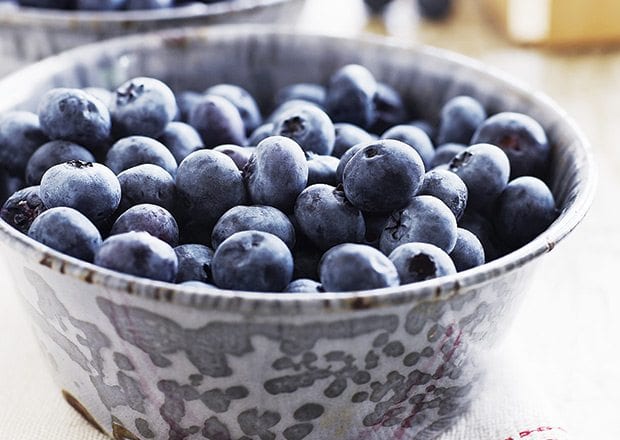Another reason to eat your fruits and veggies
Foods rich in flavonoids could enhance brain function

There is no guarantee that healthy eating can stave off Alzheimer’s disease. If it did, undoubtedly there would be a run on fruits and vegetables, fish, nuts and whole grains. AD is one of the most feared diseases. Yet, several studies suggest that certain foods and vitamins can help delay or reduce the risk of dementia.
The prevalence of AD will continue to rise as the population ages. Medications approved for its treatment modify the symptoms of the disease, but not the underlying cause. It may be prudent to consider attacking AD through a multi-pronged approach that includes pharmaceuticals, lifestyle changes and dietary intervention.
Of particular interest is a group of antioxidants called flavonoids. Antioxidants are compounds that help prevent free radicals, which are errant molecules that can damage cells, including brain cells. Flavonoids are known for their rich colors and are plentiful in blueberries, cherries and red wine, for example. A good rule of thumb is the more colorful a fruit or vegetable, the higher the level of flavonoids.
Less well known, however, is that flavonoids have broad potential and ability to preserve and enhance brain function. In a study published in the Annals of Neurology, researchers from the Nurses’ Health Study found that greater intakes of blueberries and strawberries resulted in delayed cognitive aging by up to two and a half years.
The effectiveness of flavonoids for brain health is not a new concept. Ancient China used ginko biloba, a flavonoid-rich herb, for its cognitive benefits. There is good scientific evidence today to suggest that Ginkgo biloba herb supplements help support memory.
Vitamins provide another avenue for brain health. The Oxford Project to Investigate Memory and Aging discovered that elderly adults with low vitamin B12 levels had more than four times the usual risk of AD. It is thought that low levels of vitamin B12 combined with high levels of an amino acid (building block of protein) called homocysteine, contributes to plaque formation. Plaque is considered a forerunner to AD.
Vitamin B12 is found in seafood like oysters, mussels, fish, shrimps and scallops and red meat, particularly liver. Vegetarians and vegans can get vitamin B12 from seaweeds, yeasts and fermented foods like miso and tempeh. However, the levels in these foods are lower than levels in meat products.
Another B vitamin, folate, which is closely linked with birth defects, is also associated with dementia. It’s been found that individuals who were low or folate deficient were three and a half times more likely to develop a decline in cognition. To increase your folate intake, try adding asparagus to your meals. One cup of these dark green spears will provide you with about 66 percent of your daily folate needs. Other great sources are citrus fruits, broccoli, cauliflower, beets, lentils and leafy green vegetables such as spinach, kale, collard and turnip greens.
Vitamin D may play a role as well. Vitamin D, known as the sunshine vitamin, is one nutrient that is not readily available from foods so supplementation is recommended.
Generally, fats are considered unhealthy, but fatty acids are ones you should not avoid. Omega-3 fatty acids, found in oily fish, are well known to have numerous health benefits, including protection against heart disease. Researchers at Tufts University might have stumbled on another benefit. They discovered that those who consumed an average of three servings of oily fish a week had almost a 50 percent lower risk of dementia and AD than those who eat less fish. Salmon and sardines are very good sources of omega-3.
People who do not eat fish are in luck. Walnuts and flaxseeds are very high in omega-3, as are dark green leafy vegetables and cruciferous vegetables, like cauliflower and Brussels sprouts. Those not enticed by nuts and veggies can take vegan omega-3 supplements.
The bottom line is that healthy eating can go far to reduce the risk of numerous chronic illnesses. Several investigations into the development of cognitive-related conditions suggest that individuals with the highest dietary intake of fruits and vegetables, fish, nuts and vitamin D have a measure of protection against the development of cognitive dysfunction.
Those with a family history of AD who want to protect the grey matter of their brain as they age should consider consuming more foods which contain nutrients that support their overall good health.







